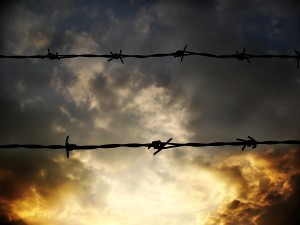The mental health of asylum seekers is ‘being ignored’, health experts and refugee advocates say.
There are concerns that even the strongest government recommendations from health professionals and refugee advocates are falling on deaf ears. 
“They [asylum seekers] need to be removed into a therapeutic setting: a hospital or into the community,” says refugee advocate, Pamela Curr.
“Those recommendations go to Canberra and they are ignored.” Curr says it’s only a matter of time before suicide attempts are carried out by detainees at Nauru or Manus Island.
“I have witnessed myself so many people cutting themselves and trying to drink and also hang themselves and also starvation for long period time,” says former detainee, Ramesh Fernandez, who now lives in Melbourne.
The disturbing reflections support the views of Psychiatrist Professor Louise Newman.
For more than a decade, she has been studying the link between long term detention and mental illness.
She believes offshore processing should be phased out immediately, as long-term detention is a major cause of mental illness.
“These people are unlikely to recover when they are faced with the prospect of arbitrary and very prolonged detention,” she told SBS.
“Their situation needs to be resolved to allow them to recover and function effectively.”
Treating mental illness inside detention centres is largely unsuccessful, says Professor Newmans, since it’s the centres themselves that are often the cause of the problem.
But in remote facilities like Nauru, there are practical difficulties in finding willing and capable health professionals to treat the psychological health of detainees.
It’s also expensive.
The cost of charter flights for detainees and workers travelling between centres is now estimated at more than $6 million a month.
“It’s ineffective and it’s producing a huge health burden of mental health problems that the Australian public is likely to have to pay for,” Professor Newman told SBS.
“We could place a thousand health professionals in these locations and it will not fix people.”
But the Government says detainees are offered the best available care.
In a statement, a spokesperson for Immigration Minister Chris Bowen said: “People transferred offshore receive health care from onsite general practitioners, nurses, paramedics, counsellors and psychologists. There is also a visiting psychiatrist and other specialists as required.”
As first appeared on SBS World News, 10 December 2012.




















